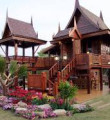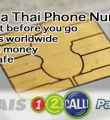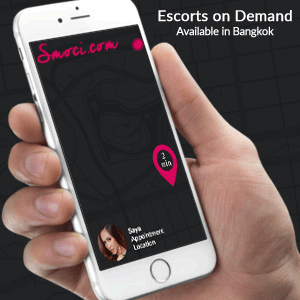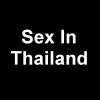Chiang Mai Health Care
I write this from the perspective of a 50 year old Caucasian male who lived in the upper Midwest up until February of this year, when I moved to Chiang Mai, Thailand. I had my share of experience with the health care system where I lived, as a patient only, and wanted to pass along some of my experiences since moving here to Chiang Mai.
No doubt in doing research on living, even retiring to Thailand, you’ve come across references to the inexpensive, “world class” health care you can expect to find here. Trying to communicate I assume, that it’s good--as good as good gets, anywhere in the world.
I’m not so sure that’s true if you're looking to get by "on the cheap", so to speak.
I’ve heard that there are more expensive, private hospitals in Bangkok, Pattaya and others, which are very close to what I’ve experienced in America, but I’ve only visited private clinics in Chiang Mai, as well as the private hospitals Rajavej and Lanna and the government hospital Suan Prung.
I was surprised by what I would consider lower standards of cleanliness in those hospitals I’ve visited. In contrast, if you’ve been to the recently opened Promenada Resort Mall, or even MORE recently opened Central Festival Mall, THAT’S what I’ve come to expect from hospitals, and what virtually every hospital and clinic I visited back home is like in terms of; ‘shiny, new, very clean’ facility.
The hospitals I’ve mentioned in Chiang Mai, however, are not like that. They’ve been open for quite a bit longer (than the new malls), and show their age in every way you might expect.
Everything is kind of grimy around the edges, the parking lots and outside areas strewn with garbage, green spaces seem largely untended, just like most every public space in Thailand, and with only minimal pest control.
Inside, there's a fair amount of grime in the corners, around air vents, on the furniture, etc.
In the USA, you can’t get away without updating EVERYTHING every 5 years, or so, at most. New furniture, flooring, and paint, with everything scrubbed to within an inch of its life, every day. That means no ant, cockroaches or rats in the parking lot, or walkways into the facility.
Also, Suan Prung’s lobby was NOT air-conditioned the two times I was there, fans but no AC. The other facilities are not air-conditioned ENOUGH, in my opinion, but how the heat is dealt with here, is a whole article unto itself.
The two private clinics I’ve been to, on the other hand (I'll give information on where they're located at the end of the article), have been newer, and cleaner, but I still sweat my ass off. I freely admit that this is a problem not all who live here will share.
The tradeoff for a less immaculate facility in Thailand is probably the cost. At Rajavej, the doctor’s consultation fee, to fill my prescription, is 300 baht, or about $10 USD, which is kind of amazing by Western standards (the pills themselves, only 250 baht). This is the straight cash cost, with no Medical Insurance. I have Accident Insurance, and a high deductible Major Medical insurance plan in case of some kind of catastrophe, but for prescriptions, etc., I just pay cash.
So that’s cheap, BUT, I believe that value may come with other, non-monetary costs.
Take the example of prescription medication. If you’re retirement age, chances are you’re taking some kind of prescription meds. If you’re lucky, they’ll be available OTC (over the counter) in Thailand, and with either a previous doctor’s instructions, or consultation with a doctor here, you can proceed buying and taking the same dosage you’d been previously. More medicines can be 'prescribed' by the pharmacy staff themselves here, as well. For simple things, like gut bugs, diarrhea (oh yeah, get ready), they can generally sell you something, and they'll let you know if you need to see an actual doctor for specific drugs, or symptoms.
If, however, the medication is NOT available OTC, then it becomes more problematic. I was prescribed two medications via doctors in the USA, medications I’d been taking for decades. One of those medicines is flat out not available in Thailand. I don’t mean one brand name vs. another, or generic, the drug is RESTRICTED here, unavailable even to private hospitals and clinics, and in point of fact, illegal to possess. I was prescribed a supposed ‘equivalent’ drug that IS available in Thailand, but I did not tolerate it well, and so ultimately I am going without.
Another is available only via private hospitals or clinics and is on the restricted list for Govt. Hospitals. It also requires, potentially, a doctor consultation EVERY TIME (monthly) you fill the prescription. I was used to standing prescriptions that I could fill at a pharmacy every month, just by taking in the pill bottle. It might require a doctor visit every 6 months, but in some cases even yearlong monthly refillable prescriptions were not uncommon. Through my employer, enrolled with a “by mail” prescription service, I would receive this medicine automatically every month, mailed to me, without having to do anything after the initial prescription was approved. Now, I could potentially have to go to hospital every month to see a doctor and fill the prescription.
Here’s an anecdote regarding that particular medicine, from my very own life in Thailand, and demonstrates that low cost can come with it's own set of hazards…
I go to Rajavej Hospital with my Target (Big Box store) Pharmacy bottle brought from the USA to help communicate that this was a medicine I had taken for years. I register, wait a little, and see a doctor, he matches the prescription, and I go to the cashier, pay doctor and medicine fee and pick up one months’ worth of pills.
FYI; medication here, is generally doled out in loose pill form in little ‘zip-lock’ bags, or ‘blister packs’ in those same little zip-locks, with instructions written on a sticker placed on the side. I know this is not unique to Thailand, I’ve seen it in South and Central America, and I’m not sure how it’s done in European countries or elsewhere, but in the USA prescriptions are almost invariably dispensed in plastic bottles, child proof caps, or senior citizen BIG caps optional, to make them easier to open, as opposed to more difficult. Instructions, prescription identification number, doctor’s name, your name, address, etc. all on a label affixed to the bottle.
TIP: When you register for the first time, they'll likely give you some kind of card with your name and other information on it, with the hospital name, as well. It's a good idea to hold on to this, in particular if you now you'll be back. It makes checking in much easier.
After one month, I head back to Rajavej. I bring with me the little zip-lock from the previous month, figuring it will streamline the process of refilling. I see the doctor, he approves, and I’m sent to the pharmacy. They tell me they’re OUT of this medicine and cannot fill it. The doctor consultation fee is waived, and the girl working the pharmacy window suggests I try Suan Prung hospital. I go there, and after registering, and waiting and SWEATING in an un-air-conditioned lobby, I am told that this medicine is NEVER available at Suan Prung, because it’s on the restricted list for Govt. hospitals.
I wait a few days to calm down, and then call Rajavej, to see if the medicine has come in. It has, verified with the pharmacy. I’m there within the hour, and after registering, blood pressure, weight, etc., a nurse walks up to me and says; “my hospital not have this medicine” (wtf#@$%?!?)
I tell her (calmly) that I spoke to someone less than an hour before, and was told they did. She leaves for a few moments then comes back and motions for me to wait for the doctor. I wait, don’t see the doctor, but am then directed to the cashier, where I still pay a doctor fee, which is actually more than the pills themselves, and pick up my prescription. Good for another month.
There was, however, a glitch on this visit.
As shown in the photo, the instructions on the two bags are different, and in one sense, plain wrong. The instructions on the left are correct. Dosage instructions and pill count. On the second, the dosage instructions are half of what I’ve been taking, even though the pill count is correct, and the actual number of pills is correct.

Now, I’ve been taking this medicine for years, and I pay attention. But what if this happened to someone who DOESN’T pay attention, maybe someone who’s old enough to be forgetful, or worse--with dementia? Maybe they’ve got a Thai helper/wife/girlfriend who’s not watching that close, and they just follow the instructions on the envelope? Depending on the medication, we’re now talking a potentially life threatening situation. What if it’s high blood pressure medication, or high cholesterol, and suddenly the patient is taking HALF the originally prescribed dosage? If the mistake is never addressed, it could go on and on and possibly result in an untimely death.
There's an important thing to realize about the Thai health Care system; it’s not all networked up, like you might be used to if you’re from the USA. The different entities, don’t communicate with each other, can’t, in most cases. One hand does not know what the other is doing. Plus, the language barrier adds an additional layer to the confusion. Yes, the doctor you see may speak fairly good English, but the nurses, pharmacy staff? No.
This is Thailand, and the Thai people have every reason to speak Thai, and not English, so I’m not saying this is wrong, but understand; most of the hospital staff does NOT speak English. This is the case most of the time, and if you want to go beyond very basic pleasantries, or instructions, you may need help.
Rajavej hospital has a dedicated office with English and Japanese speaking staff, which is very helpful, but they're not going to be holding your hand throughout the entire process, and this IS the hospital that made the above prescription error.
Now, in point of fact, all of this can have interesting repercussions. You might get medicines, dosages all screwed up, and the teenage girl dispensing the medicine, who was schooled in a system where students are not allowed to fail, won’t catch it. But a benefit, if you want to look at it that way, is that you can potentially go to several different hospitals, and clinics, and run the routine at every one, and nobody connects the dots, and you can stockpile your medication.
That’s what I’ve done. I’ve seen 4 or 5 different doctors, at 2 hospitals and 2 clinics for the same medication, all within a few weeks’ time. It’s a lot of running around, but then I can be more certain I won’t run out if the medication suddenly becomes entirely unavailable.
Frankly, as a Farang, be confident, particularly if you have your home doctor's instructions, prescriptions bottles, etc., and even the doctors are less likely to question your requests.
Key points--
1. If you’re going to go the budget route, you may have to be your own doctor, somewhat, paying close attention to dosages, and treatments, using your resources (the internet!) to at least educate yourself a little on what’s being done, prescribed, etc. Probably not a bad idea even if you’re in a top dollar facility.
2. Keep registration cards, past prescription bottles (here, envelopes) if you're going to be filling a prescription regularly, and take them with you, when you do.
3. Private clinics have an extra level of ease, and convenience, but will generally cost a LITTLE more than going to one of the hospitals.
4. Despite the lack of a pristine environment in some of the older, cheaper hospitals and clinics, I don't necessarily believe that you're in any imminent danger of infection--they DO clean, and practice modern sterile procedures.
5. If 'Cleanliness is next to Godliness', what's next to Buddha?
Private clinics I’ve visited:
HCMC--
I have seen Dr. Morgan (lady doctor, speaks fluent English) and can recommend her at the Health Care Medical Clinic: http://www.healthcaremedicalclinic.com/ the website seems to be up to date, and I’ve scheduled all my appointments through the website, and follow up emails with her staff, with no problems.
MEDIC CLINIC
I’ve seen Dr. Amornphit (lady doctor, speaks fluent English) and can recommend her, as well. She does General Practice and Psychiatry. This is a LATE clinic, open from 5pm until 10:30pm Mon.-Fri. and then mornings on Sat. and Sun.
I don’t know if they have an official website, but the Foursquare page has an accurate map and information: https://foursquare.com/v/medic-clinic/517913e0e4b069bbf77cffa9
DR. KITTIWAN PSYCHIATRIC CLINIC
I’ve also seen and would recommend Dr. Kittiwan Thiamkaew (lady doctor, speaks fluent English), Psychiatrist and Doctor of Medicine at her private clinic: http://www.suanprung.go.th/eng/clinic.html she’s also on staff at Suan Prung hospital.













Great post and very accurate. Thais mix up medicines ALL THE TIME. If you pay attention to news or general chatter, Thais are always dying from medicine here. I have personal experience where I told them my allergy, and that it could kill me, and they gave it to me anyway. Then they gave me a cocktail of meds that were harmful to take with each other.
My point is, if you are going to use the hospitals in Thailand, you have to do your homework on everything. Double check the pills, dosages, and what they can’t mix with. Their “mai pen rai” attitude applies to everything, even your life.
And if that isn’t bad enough, some of the ambulance crews get money from the hospitals for bringing you in. They each have territories and have sponsorships by large Thai/Chinese companies. I can’t speak for all of Thailand, but I know in Udon, via a family member who works for one, he said sometimes your body is worth more dead than alive, so if you’re on the edge, they make sure you don’t make it. I’m guessing it’s due to the sale of organs.
Sometimes it works out and it’s cheap. Sometimes they mess up. Sometimes they kill you. Since there is no accountability, it’s out of your hands either way. So go in informed and hope to whatever God you believe in that you never end up in the ER in a life or death situation.
I’ve had the most problems with Pattaya hospitals. Complete imbeciles working in some of those places. My experience with RAM in Chiang Mai was very nice and professional. The place could use a facelift, but other than that, they took very good care of me for the three days I was there after an emergency operation. That said, if they got a facelift, they would just pass those costs onto us, so maybe it’s best they stay as they are.
RAM has been the best place to go for anything serious, they do a good job. HOWEVER they really tick me off with the drugs. I KNOW FOR A FACT I can get them cheaper elsewhere but it’s always a hassle. I’m like no i just want a prescription to buy them elsewhere and they flatly refuse. Even something like Amoxicillin is 3 times cheaper at a Thai Pharmacy. You have to pay for the drugs before you get them so make sure there isn’t crap on there you don’t need like paracetamol or something you can buy cheaper somewhere else.
I’m actually quite pleased with the healthcare here in Chiang Mai.
So far, I have also used Dr. Morgan for things such as sinus and ear infections and although I may have to pay slightly more for the meds than I would at a Thai pharmacy (not including Boots) I’m a satisfied patient. Her consultation fee is only 200 baht which compared to the last time I saw a Dr. at UCLA is about 1/25th of the cost.
Other procedures I have had here are…
1. I had a mosaic wart on the ball of my foot that had been there for about 5 years. Back in the U.S. I had seen a general practitioner (shrugged her shoulders and charged me $150) A Dermatologist (Told me it was a callous and charged me $250) and then a Podiatrist who told me that 10 sessions of “freezing” it off *might* get rid of it (no guarantees) at $180 per session or $1800 total.
I went to Lanna hospital, had a Dr. look at it who then referred me to a specialist (no charge). The specialist looked at it, told me what it was…prescribed me some Verumal (topical) and 8 weeks later, it was gone. Total cost 400 Baht ($13)
2. I recently (in the last month) had frozen shoulder arthroscopic surgery at Rajavej with Dr. Chanakarn in order to shave down a bone spur in the socket and clear out the scar tissue. He is the sports medicine Dr. for the Thai National Team (Olympic Team) and did his residency in the U.S.
The cost in the US would have been…
Consultations $ 500 (minimum)
MRI: $ 1,500
Shoulder Surgery: $24,000
1 night hospital stay : $ 4,000 (what a friend recently paid 2 nights @$4,000 per night)
Physical Therapy $ 6-8,000 (40 sessions at $150-200 per session)
Total cost in U.S. $36,000- $38,000
http://www.newchoicehealth.com/Directory/CityProcedure/California/Los%20Angeles/127/Shoulder%20Surgery
http://www.newchoicehealth.com/directory/cityproceduretype/california/los%20angeles/15/mri
My cost in Chiang Mai…(in USD at 32 baht per dollar)
Consultations $ 16
MRI: $ 250
Shoulder Surgery: $ 2,875
1 night hospital stay : $ 54
Physical Therapy $ 437 (40 sessions at 350 baht per session (20 completed so far))
Total Cost in Chiang Mai $3,632
For that kind of savings, I can deal with the lack of Air Con and all the other inconveniences. In fact, it would have cost more to have done in the U.S. with insurance (10-20% copay).
I’m glad you’ve had good experiences. Mine have not all been bad, and my goal is to give a little wider view of the conditions you are met with when traveling to a developing nation in search of inexpensive health care.
I’m curious, and ask these questions non-rhetorically; if your shoulder surgery had somehow been ‘botched'(and this happens in the west, and elsewhere) do you have a sense of what, if any, recourse you’d have had? Are Thai doctors required to have malpractice insurance? If, 6 months after the surgery, you couldn’t move your arm or fingers, could you sue for compensatory and/or punitive damages?
Having not needed anything as serious as surgery myself yet, I’ve done no research on the extent of medical malpractice options in Thailand.
Thank you for the information provided, it was educational.
That’s a good question. I’m pretty sure that I would have no recourse if something goes wrong although I have not researched it and cannot answer definitively. However, being that I am uninsured in the U.S. and have been charged what I consider obscene amounts for healthcare there, I would rather take my chances here than pay another dime into what I consider a corrupt healthcare system.
Hi, and thanks for opening up my eyes on this medication situation. I didn’t realize that some meds may be on a restricted list in other countries. Is there perhaps a way to communicate w/ a general practitioner doctor there and find out if certain meds are not to be dispensed in Thailand? This would be extremely helpful.
I think sh#2&8e17;s a bit too skinny for my taste. But kudos for her wearing something not de la Renta-ishIn the second photo, she reminds me of Voldemot from Harry Potter